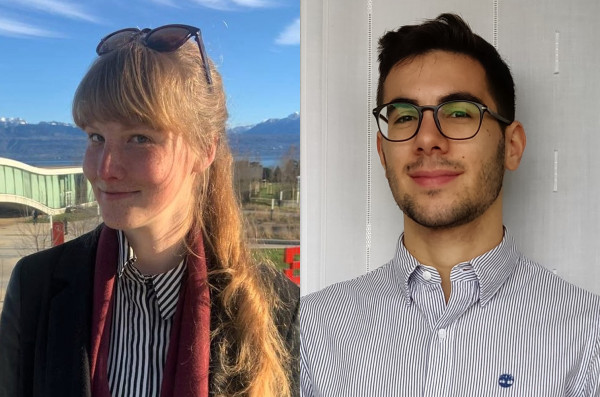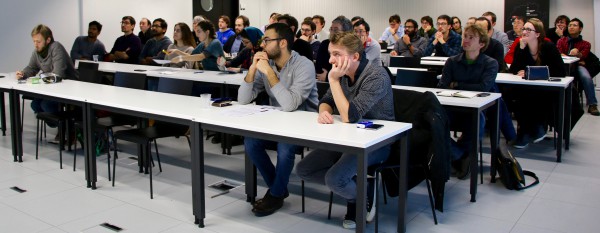MARVEL Junior Seminar — May 2025

Each seminar consists of two presentations of 25 minutes each, allowing to present on a scientific question in depth, followed by time for discussion. The discussion is facilitated and timed by the chair.
Pizzas will be served after the seminars in order to facilitate discussions based on the talks just presented.
Onsite participation
12:15 — Seminars take place in EPFL room Coviz2 (MED 2 1124)
~13:15 — Pizzas will be served in the MED building atrium, second floor
Online participation
Starting at 12:15:
https://epfl.zoom.us/j/68368776745
Password: 1923

Abstracts
Talk 1 — Error-informed Gaussian process regression for predicting DFT quantities
Anna Paulish, Michael Herbst
Mathematics for materials modeling (MATMAT), EPFL
Nowadays, data-driven methods have gained popularity in computational materials science. However, most atomistic machine learning approaches assume that errors in the training data follow small Gaussian noise distributions, requiring all simulations to be of uniformly high quality. This means that numerical parameters -- such as discretisation basis, k-point sampling, and tolerance settings -- have to be accurate throughout the entire data generation process, leading to high computational costs.
This work aims to develop a heteroscedastic Gaussian process regression (GPR) framework for predicting Density Functional Theory (DFT) quantities by incorporating discretization error estimates, moving from the standard Gaussian noise assumption to a more quantitative description of the error. The proposed error-informed GPR approach will be able to better model datasets of different quality, giving a way to reduce data generation costs while maintaining high predictive accuracy. Furthermore, we will identify the key aspects necessary to implement this GPR model as a practical tool enabling accelerated and cost-efficient computational materials discovery.
Talk 2 — Sum-over-pole framework to embed many-body interacting systems
Alessandro Carbone, Nicola Marzari
Laboratory of theory and simulation of materials (THEOS), EPFL
Quantum embedding methods are powerful techniques to study interacting correlated electrons beyond the mean-field limit. An established approach is dynamical mean-field theory (DMFT), which addresses the problem by mapping strongly correlated electrons into the Anderson impurity model. Here, we start from a different strategy meant to solve generic Dyson-like equations, the algorithmic inversion method, to model any many-body system in an equivalent manner. In particular we provide an embedding formulation which gives prominence to sum-over-pole representations of the Green’s functions, and introduce a novel technique that focuses on the dynamics of the poles to achieve fully self-consistent solutions. Leveraging exact diagonalization, this embedding framework operates directly on the real-frequency axis - and any complex path - at zero or finite temperatures. We demonstrate the approach on the one-dimensional Hubbard ring, performing self-consistent calculations on the real axis, ensuring the accurate computation of both spectral and thermodynamic quantities.
Check the list of the next MARVEL Junior Seminars here.
Low-volume newsletters, targeted to the scientific and industrial communities.
Subscribe to our newsletter